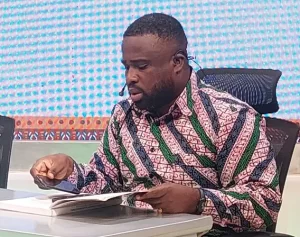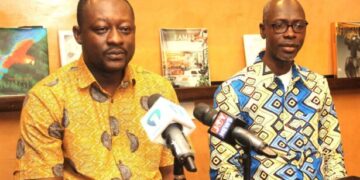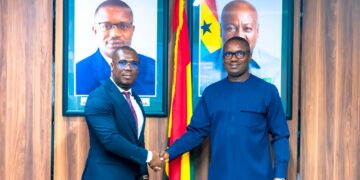 Benjamin Gyewu-Appiah, a key member of the New Patriotic Party (NPP) communication team, has publicly addressed his controversial remark regarding self-immolation if John Dramani Mahama of the National Democratic Congress (NDC) emerged victorious in the 2024 presidential election.
Benjamin Gyewu-Appiah, a key member of the New Patriotic Party (NPP) communication team, has publicly addressed his controversial remark regarding self-immolation if John Dramani Mahama of the National Democratic Congress (NDC) emerged victorious in the 2024 presidential election.
With Mahama’s decisive win now a reality, Gyewu-Appiah’s previous statement has resurfaced, sparking debates across social and mainstream media.
In an interview on Neat FM, Gyewu-Appiah expressed regret over his rash words, which were made during a moment of heightened political tension.
“I deeply regret my comment,” he stated, acknowledging that his remark about self-harm was made in the heat of the moment and was never meant to be taken literally.
He explained that at the time, he had full confidence in his party’s efforts, particularly the comprehensive campaign strategies and the impactful message put forth by Vice President Dr. Mahamudu Bawumia.
Reflecting on the lead-up to his infamous declaration, Gyewu-Appiah recalled being challenged during a political television program.
The host, a known pundit, had predicted that Dr. Bawumia would face a devastating loss, claiming he would secure less than 20% of the valid votes. This prediction deeply angered Gyewu-Appiah, who felt compelled to react strongly in defence of his party and its candidate.
“The comments I heard about Bawumia’s chances were hurtful,” Gyewu-Appiah admitted. “In my frustration, I made a rash and extreme statement, but it was a political remark, not something I intended to be taken seriously.”
With Mahama’s victory now firmly established, Gyewu-Appiah has used this opportunity to clarify the intent behind his comments. He emphasized that the remark was part of the political rhetoric aimed at rallying the NPP’s base to take action and actively engage in the voting process.
“It was about motivating our supporters, getting them out to vote, and showing them we believed in our candidate’s chances,” he explained.
Acknowledging the gravity of his words, Gyewu-Appiah issued a public apology to the Ghanaian people, emphasizing that while political rhetoric can be passionate, it should always be measured and responsible. Ghanaian cuisine recipes
“I was caught up in the moment, and I apologize to the public for the extreme nature of my words. I never meant for them to be taken as anything but a call to action in the heat of the political battle.”
























